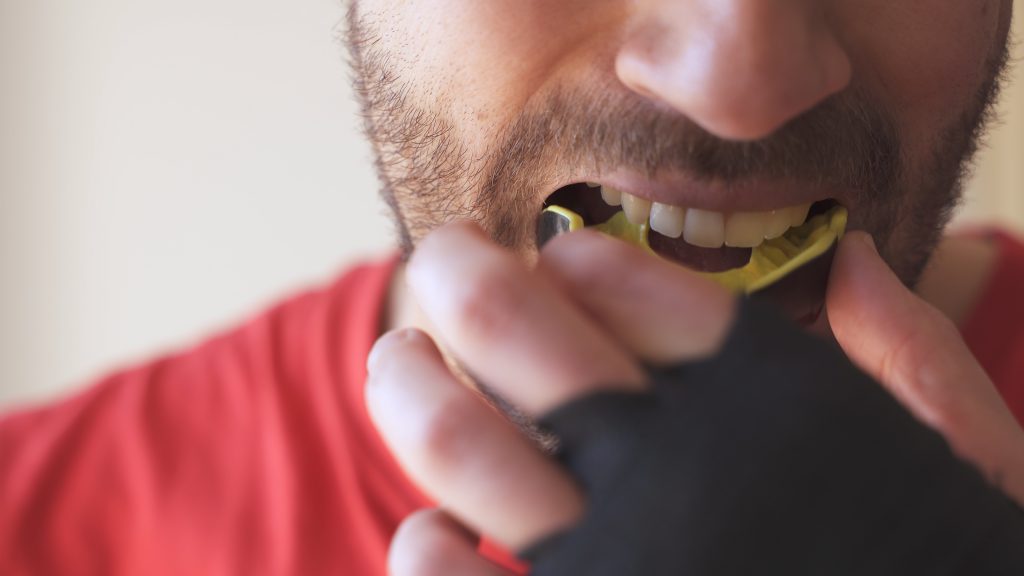What Happens If You Never Get a Dental Check-Up

Dental check-ups are an important part of maintaining good oral health. They can help prevent the development of serious dental problems, such as cavities, gum diseases, and tooth decay.
However, many people neglect dental visits often due to fear, cost, or simply forgetting to schedule an appointment. But what exactly happens if you never get a dental check-up?
Which problems arise if you don’t go in for a dental check-up?
1. Cavities
The first thing that can happen is the development of cavities. These occur due to the buildup of plaque, a sticky film of bacteria that collects on the teeth. If you do not remove plaque regularly, it can lead to the formation of cavities. These are small holes in the teeth that can cause pain and sensitivity. Over time, untreated cavities can get large and deep, eventually reaching the tooth’s nerve, causing serious infection or even tooth loss.

Did you know: How To Make Novocaine Wear Off Faster?
2. Gum disease
Another problem that can arise from neglecting dental check-ups is gum disease. This serious condition occurs when the gums become infected and start to pull away from the teeth. A dentist can easily treat the early stages of gum disease. But if left untreated, it can lead to more serious problems, such as receding gums, loose teeth, or tooth loss.
Gum disease can also increase the risk of other health problems, such as heart disease and stroke, as the bacteria from infected gums can enter the bloodstream.
3. Weakened enamel
Another consequence of not getting dental check-ups is the loss of protective enamel on the teeth. Enamel is the hard outer layer of the tooth that helps protect it from damage and decay. Over time, certain habits, such as drinking acidic beverages, eating sugary foods, and grinding the teeth, can cause the enamel to wear away. During check-ups, a dentist can detect any signs of enamel loss and recommend treatments to protect the teeth, such as fluoride treatments or dental sealants.
4. Bad breath
In addition to these problems, neglecting dental check-ups can lead to the development of bad breath. This is because plaque and tartar buildup can cause bacteria to grow in the mouth, leading to unpleasant odors. A dental check-up can help prevent bad breath by removing plaque and tartar, or any excess food or bacteria toothbrush or floss can’t reach. Often, we might believe that our mouth is clear of these, but there can be underlying causes for cavities or bad breath.

5. Miscellaneous health issues
Furthermore, neglecting dental check-ups can significantly impact a person’s overall health and quality of life. For example, people with untreated dental problems may experience chronic pain, headaches, and difficulty eating and speaking. This can lead to decreased confidence, self-esteem, and social isolation. Untreated dental problems can actually lead to more serious health problems, such as infections, abscesses, and even systemic diseases.
6. Expensive
Finally, neglecting dental check-ups can be very costly in the long run. Regular check-ups and preventive treatments, such as cleanings and fluoride treatments, can help prevent the development of serious dental problems. This reduces the need for costly and complex dental procedures, such as fillings, extractions, and crowns. People can save money and protect their oral health long-term by investing in regular dental check-ups. Paying for a semi-annual cleaning is far more affordable than treating a cavity or an extraction.
Overall, regular dental check-ups are vital to maintaining good oral health and should not be overlooked or neglected. People can prevent the development of serious dental problems and enjoy a lifetime of good oral health. All they need to do is schedule an appointment with a dentist nearby.
How to Maintain Good Oral Health?
Our mouth is home to millions of bacteria that can cause oral diseases and infections if not properly managed. Maintaining good oral health requires consistent effort and good oral hygiene practices. Here’s what you can do.
Tooth Brush:
Brushing your teeth twice a day is crucial. Use a soft-bristled brush and fluoride toothpaste to gently clean your teeth and gums. Brush for at least two minutes each time, making sure to cover all areas of your mouth, including the hard-to-reach areas. Remember to replace your toothbrush every three months or sooner if the bristles become frayed.
Floss:
Flossing helps remove food particles and plaque from your teeth and the gum line. It’s necessary to floss at least once a day to keep your teeth and gums healthy. Use a piece of floss about 18 inches long, wrap it around your fingers, and gently slide it between your teeth. Be sure to clean both sides of your teeth and floss behind your back teeth.
Use Mouthwash:
Mouthwash can help kill bacteria and freshen your mouth/breath. Using an antibacterial mouthwash after brushing and flossing is ideal to help reduce the number of bacteria in your mouth. Be sure to use mouthwash as directed on the label, and avoid using it as a substitute for brushing and flossing. Using mouthwash alone isn’t enough to remove bacteria from your mouth.
Limit Sugary and Acidic Foods:

Foods high in sugar and acids can erode the enamel on your teeth and cause cavities. Limit consumption of such foods and drinks as soda, candy, and citrus fruits. If you do consume these foods, be sure to rinse your mouth with water afterward.
Get Regular Dental Check-ups:
Schedule a dental appointment at least once every six months for a check-up and professional cleaning. Your dentist can detect any oral health problems early on and recommend the appropriate treatment.
Quit Smoking:
Smoking can cause many oral health problems, including gum disease, bad breath, and tooth discoloration. Quitting smoking can improve your overall oral health and reduce the risk of developing oral cancer.
Eat a Healthy Diet:
Your diet plays a significant role in your oral health. Eating a balanced diet that is low in sugar and high in calcium and vitamins can help maintain strong teeth and gums. You can avoid damaging your teeth by consuming more fruits and vegetables that support oral hygiene.
Wear a Mouth guard:

If you play sports, wear a mouthguard to protect your teeth and gums from injury. Mouthguards can also help prevent concussions by absorbing the shock of impact to the jaw. If you grind your teeth during the day or at night, a mouthguard can prevent you from damaging your teeth.
Endnote
Maintaining good oral health requires consistent effort and wise decisions regarding what you consume. Brushing, flossing, using mouthwash, limiting sugary and acidic foods, visiting the dentist regularly, and quitting smoking are essential for good oral health.
By following these tips, you can keep your teeth and gums healthy, prevent oral health problems, and maintain a beautiful smile.
If you need dental care or any other dental-related assistance, get in touch with Genuine Dental Arts where dentistry is done differently.